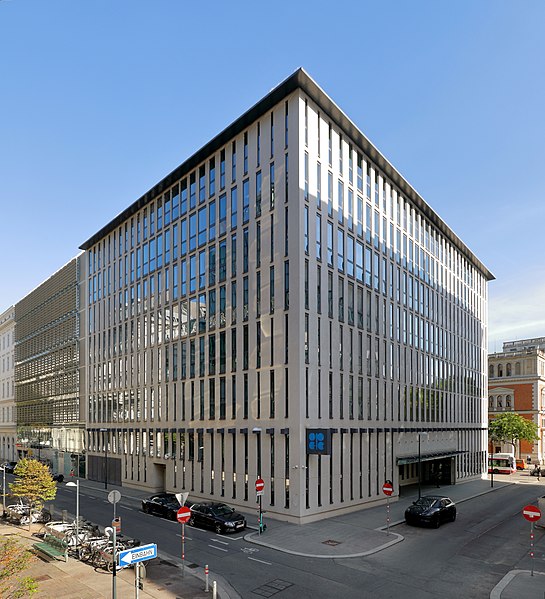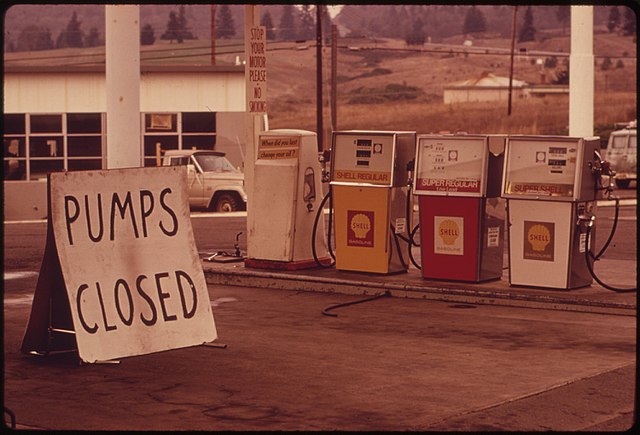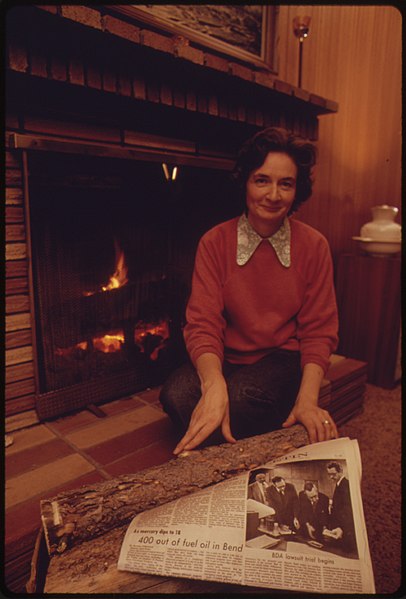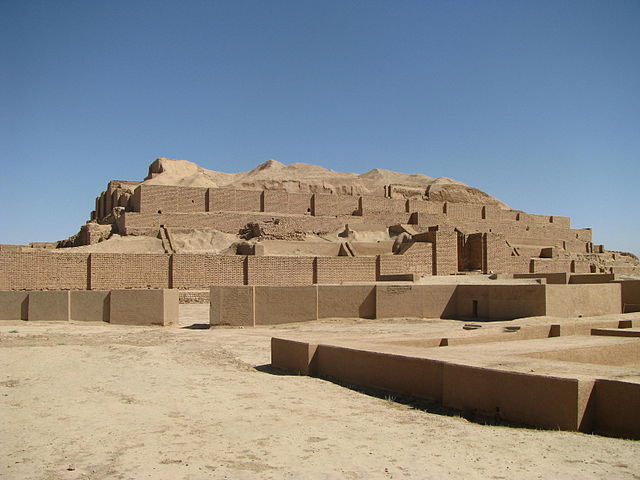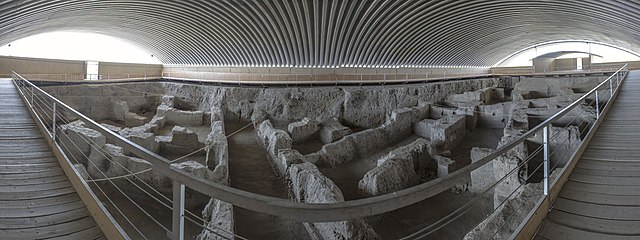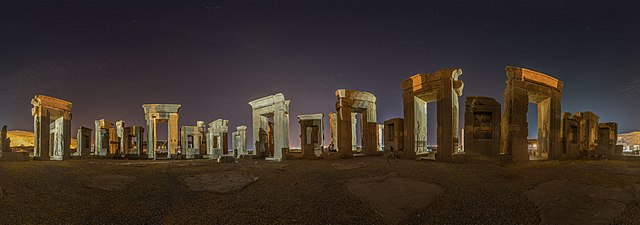The Organization of the Petroleum Exporting Countries is an organization enabling the co-operation of leading oil-producing countries in order to collectively influence the global oil market and maximize profit. It was founded on 14 September 1960 in Baghdad by the first five members. The organization, which currently comprises 12 member countries, accounted for an estimated 30 percent of global oil production. A 2022 report further details that OPEC member countries were responsible for approximately 38 percent of it. Additionally, it is estimated that 79.5 percent of the world's proven oil reserves are located within OPEC nations, with the Middle East alone accounting for 67.2 percent of OPEC's total reserves.
OPEC Conference delegates at Swissotel, Quito, Ecuador, December 2010
OPEC headquarters in Vienna (2009 building)
An undersupplied US gasoline station, closed during the oil embargo in 1973
A woman uses wood in a fireplace for heat. A newspaper headline in the foreground shows a story regarding a lack of heating oil in the community.
Iran, also known as Persia and officially the Islamic Republic of Iran (IRI), is a country in West Asia. It is bordered by Iraq to the west and Turkey to the northwest, Azerbaijan, Armenia, the Caspian Sea and Turkmenistan to the north, Afghanistan to the east, Pakistan to the southeast, the Gulf of Oman and the Persian Gulf to the south. With a mostly Persian-ethnic population of almost 90 million in an area of 1,648,195 km2, Iran ranks 17th globally in both geographic size and population. It is the sixth-largest country entirely in Asia, the second-largest in West Asia, and one of the world's most mountainous countries. Officially an Islamic republic, Iran has a Muslim-majority population. The country is divided into five regions with 31 provinces. The nation's capital and most populous city is Tehran, with around 16 million people in its metropolitan area. Other major cities include Mashhad, Isfahan, Karaj, and Shiraz.

The well-preserved Inscription of Ardashir Babakan (224–242 AD) in Naqsh-e Rostam: "This is the figure of Mazdaworshipper, the lord Ardashir, King of Iran."
Chogha Zanbil (14th-13th century BC), an ancient Elamite complex in Khuzestan, built by Untash-Napirisha. UNESCO World Heritage Site.
Ecbatana (present-day Hamadan) was chosen as the first capital of Iran by Deioces in 678 BC, the founder of Medes Empire.
Persepolis, the ceremonial capital of the Achaemenid Empire (550–330 BC). It is one of the key Iranian Cultural Heritages.


